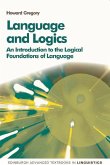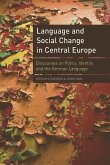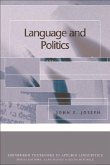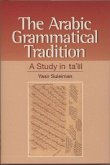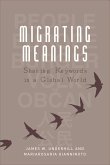'Professor Sara's rigorous and innovative work, with its "rich translation format", gets to the inner depths of the text and immediately helps the reader realize that Sibawayh and his contemporaries were in fact operating, not within any Western or Eastern paradigms, but rather within their own paradigm of Arabic linguistics. It is a very welcome and long-awaited contribution to the fields of Arabic language and linguistics, history of Arabic grammatical tradition, and history and historiography of linguistics.' Mohammad T. Alhawary, Professor of Arabic Language, University of Oklahoma 'An important contribution to the subject of phonology in Classical Arabic Linguistics, this book deals with the treatise of the Imalah by the founder of Arabic linguistics, Sibawayh, who is also a great grammarian and the creator of the most comprehensive systematic description of classical Arabic grammar. This translation by Professor Sara is faithful and his analyses are masterfully accurate. The book makes a significant contribution to Arabic linguistics in general and to phonetics and phonology of the language in particular. It is a very welcome addition to our increasing number of studies on the foundational analyses of Classical Arabic Linguistics.' Bassam K. Frangieh, Yale University An 8th-century scholar and linguist born in Persia, Sibawayh is to Arabic linguistics what Panini is to Indian linguistics. He departed from the traditional methods of doing analysis to launch a more objective, descriptive and formal paradigm of linguistic analysis. Sibawayh wrote only one book called ?al-Kitab 'the book', considered to be the most thorough grammar of Classical Arabic ever written. His grammar established the foundations of Arabic linguistics as it became a statement of the new paradigm, and the book has become the model for all subsequent grammarians of Arabic. The treatise on ?imalah 'inclination' is part of this grammar. It brings together the disparate mechanisms of 'inclination' by stating the conditions for its occurrence. This is not a purely an abstract treatise, but a study that looks over the various dialects of Arabic and formulates the conditions under which 'inclination' takes place. Though the triggers for 'inclination' are the presence of an [i] or a [y], either expressed or implied, in contexts where an [a] changes to an [e], the consonantal constraints to prevent these changes are also carefully detailed. As a characteristic of Sibawayh's work, he also accounts for all the exceptional cases in a comprehensive manner. The treatise shows the systematic nature of 'inclination', with a rich display of data from actual occurrences in the language. It also displays the optional nature of 'inclination' as different dialects make use of some triggers but not of others. The six chapters take up the topic of inclination from its most basic contexts like the occurrence of the [i] trigger, and the occurrence of the [y] trigger, to the exceptional cases, the consonantal segments that prevent inclination, the influence of [r] on inclination, and the effect of inclination on the harakat 'motions/short vowel'. Key features: The treatise is the first statement on 'inclination' in classical Arabic. This is the first bilingual text, Arabic-English, of the treatise with notes and comments. This book will be of interest to linguists, Arab linguists, phonologists and phoneticians, classical Arabic dialecticians, and those interested in the development of Arabic.
Hinweis: Dieser Artikel kann nur an eine deutsche Lieferadresse ausgeliefert werden.
Hinweis: Dieser Artikel kann nur an eine deutsche Lieferadresse ausgeliefert werden.


